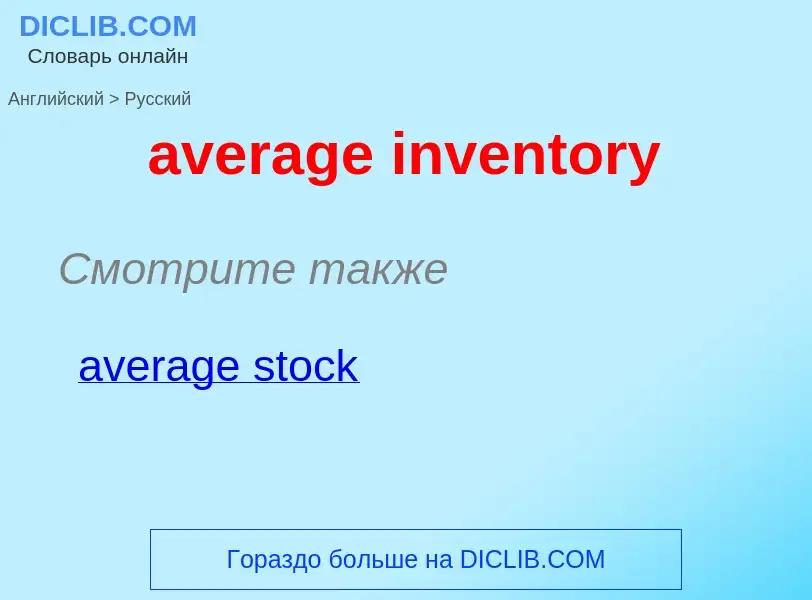Перевод и анализ слов искусственным интеллектом ChatGPT
На этой странице Вы можете получить подробный анализ слова или словосочетания, произведенный с помощью лучшей на сегодняшний день технологии искусственного интеллекта:
- как употребляется слово
- частота употребления
- используется оно чаще в устной или письменной речи
- варианты перевода слова
- примеры употребления (несколько фраз с переводом)
- этимология
average inventory - перевод на Английский
Смотрите также
Смотрите также
бухгалтерский учет
затраты на поддержание запасов [по поддержанию запасов] (затраты на создание и хранение товарных запасов (капитальные вложения и текущие затраты, связанные с созданием и эксплуатацией мощностей по хранению товарных запасов, а также расходы на закупку запасаемых товаров) плюс затраты по подготовке запасов к использованию (совокупность капитальных и текущих затрат, связанных с передачей запасов в производство))
экономика
стоимость хранения
Смотрите также
Определение
Википедия
Vendor-managed inventory (VMI) is an inventory management practice in which a supplier of goods, usually the manufacturer, is responsible for optimizing the inventory held by a distributor.
Under VMI, the retailer shares their inventory data with a vendor (sometimes called supplier) such that the vendor is the decision-maker who determines the order size, whereas in traditional inventory management, the retailer (sometimes called distributor or buyer) makes his or her own decisions regarding the order size. Thus, the vendor is responsible for the retailer's ordering cost, while the retailer usually acquires ownership of the stock and has to pay for their own holding cost. One supply chain management glossary identifies VMI as
The practice of retailers making suppliers responsible for determining order size and timing, usually based on receipt of retail POS and inventory data.
although a 2008 article notes that there is no standard definition of VMI and the term's usage varies "significantly" among companies supporting VMI processes.
A third-party logistics provider may also be involved to help ensure that the buyer has the required level of inventory by adjusting the demand and supply gaps.

